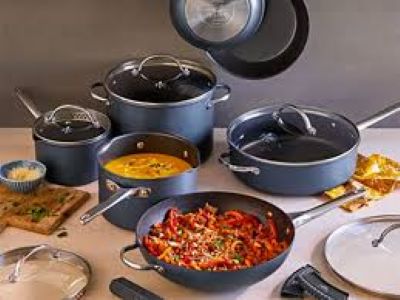It’s no secret that nonstick cookware has a bit of a reputation. Despite being a big timesaver when it comes to cleaning up, Teflon can pose health risks if the coating wears down.
In fact, there’s been an uptick in cases of an illness called Teflon flu recently, according to The Washington Post. Last year, there were 267 suspected cases of Teflon flu, which is thought to be the most since 2000.
But what is this rare illness? How dangerous is it, and how at risk are you?
What is Teflon flu?
Teflon flu, also known as Polymer fume fever, is an illness that occurs as the result of inhaling fumes from an overheated Teflon or nonstick pan. This type of cookware is made from polytetrafluoroethylene—a.k.a. PTFE or ‘forever chemicals,’ which can take decades or hundreds of years to break down.
Those PFTE’s aren’t a risk, in most instances. If you’re using your pan as instructed, you shouldn’t have any reason to worry. However, when the Teflon is heated over 500 degrees, it can increase emissions that cause this “fume fever,” CNET reports.
While the symptoms are temporary—and typically occur within 12 to 24 hours of exposure—you might experience fever, chills, muscle tension, and headache. Considering the fact that it sounds not fun, there is a simple way to avoid Teflon flu: Stick to low to medium heat settings and double check that the surface temperature never rises about 450 degrees.
Dr. Sisavath Keovilay, the baking and pastry department chair at Keiser University Center for the Culinary Arts, said if you’re still concerned about the Teflon flu, you can always switch to a different pan entirely.
Shawn Matijevich, lead chef instructor of online culinary arts and food operations at the Institute of Culinary Education, recommends a pre-seasoned blue steel or cast iron pan, which have the “same nonstick benefits” without the risk.
“I personally don’t use Teflon pans at home and only use them professionally when I’m cooking a lot of eggs or specialty items where the Teflon is going to give me an efficiency advantage,” he said.


